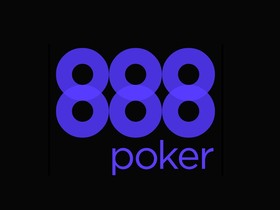A bill that calls for expanding iGaming to include online casino gaming and online poker in Indiana consists of an entire chapter on responsible interactive gaming.
Last month, Rep. Ethan Manning (R-Logansport) introduced HB 1536, which calls for launching online poker and casino gaming by September 1, 2023.
Indiana has had legal online sports betting since September 2019, so the inclusion of an entire chapter of HB 1536 devoted entirely to responsible gaming shows lawmakers want to strengthen customer protections ahead of any possible iGaming expansion.
The Indiana iGaming bill calls for the Indiana Gaming Commission (IGC) to “develop responsible interactive gaming measures,” which would include setting up a statewide database of individuals prohibited from opening an account or taking part in online gambling. Self-exclusion data of individuals would remain confidential.
The IGC would also “establish and implement a voluntary exclusion program for interactive gaming.” HB 1536 also mandates several rules — including that participants in the voluntary exclusion program agree that they may not petition the regulator for permission to gamble.
Operators would be required to “make all reasonable attempts” to stop all direct marketing efforts to a person participating in the voluntary exclusion program. They would also not be allowed to cash any checks, deposit money into an account, or extend credit to, a person in the program.
But an operator would not be prevented from seeking the payment of debts accrued by an individual before they entered the voluntary exclusion program.
Disruptive gamblers beware — under HB 1536, the IGC may authorize the ejection or exclusion of an individual if their presence in an online poker room or casino “calls into question the honesty and integrity of the gambling operations, or interfere with the orderly conduct of the gambling operations.” Individuals ejected or excluded from such disruptions would be allowed to petition the IGC for a hearing on reinstatement.
Operators would be required to “conspicuously display” a toll-free number for problem gambling services — such as 1-800-GAMBLER — where it will be seen by customers making their initial (and all follow-up) logins to an online poker room or casino. They must also provide specific mechanisms for customers to self-exclude themselves temporarily or permanently, including the ability to:
- terminate an interactive wagering account
- set daily, weekly, and monthly deposit limits, thereby allowing a customer to specify the maximum amount that can be deposited in their account within a specific time period
- establishing spending limits on a daily, weekly, and monthly basis, giving a customer the tools to specify the maximum amount of deposits that a customer may put at risk during a specific time frame
Self-imposed wagering or deposit limits must take effect immediately, but if a customer increases a previously imposed limit, the increase won’t take effect until the previous limit expires.
HB 1536 also stipulates that online poker and casino operators in Indiana “may not knowingly mail or otherwise forward any gaming-related promotional materials or electronic mail to an interactive wagering account holder during any period in which the account holder has elected to temporarily or permanently suspend or terminate interactive gaming through the account.”
Customers must also continue to have access to their interactive wagering account and the ability to withdraw funds from them, barring any temporary or permanent suspension of limits placed upon the customer by regulators.




